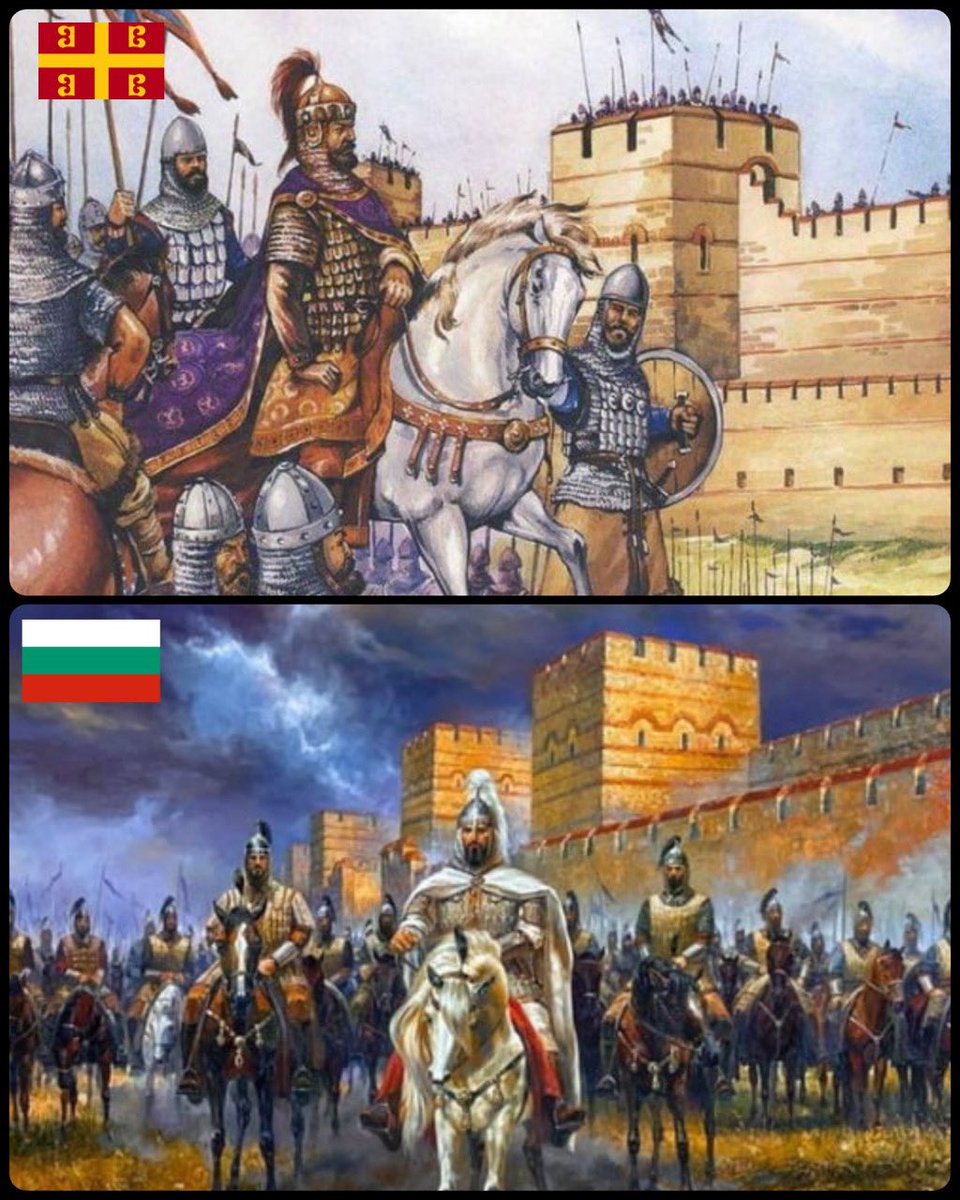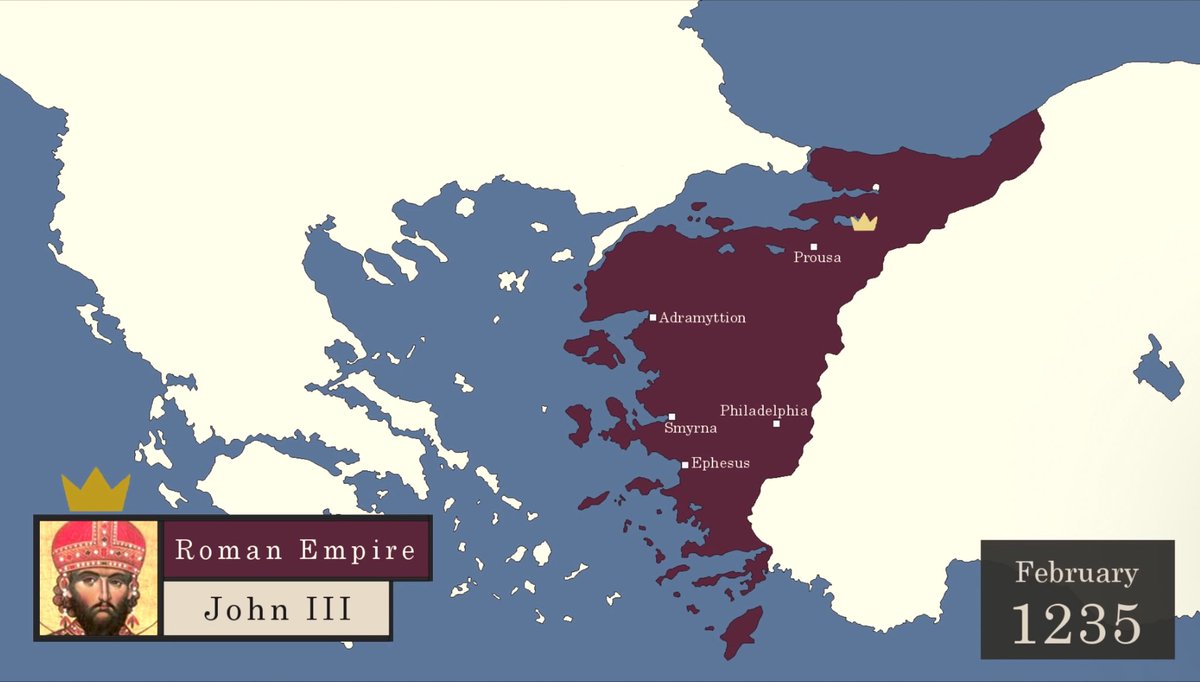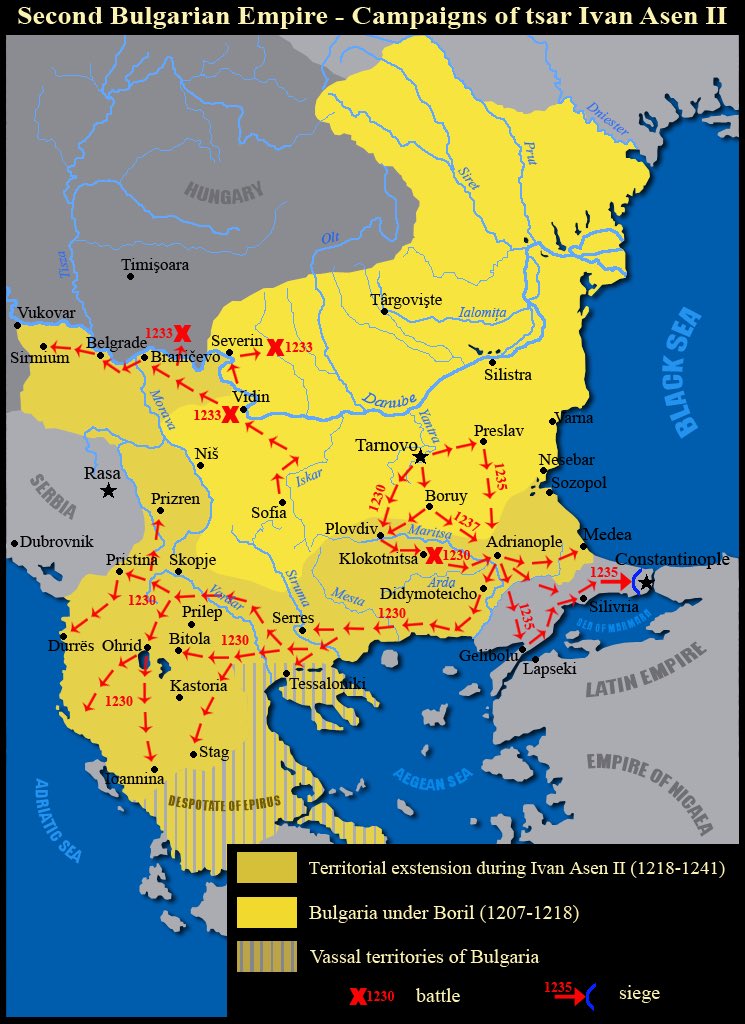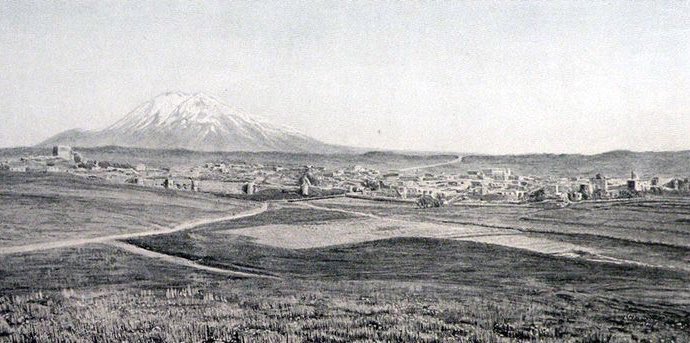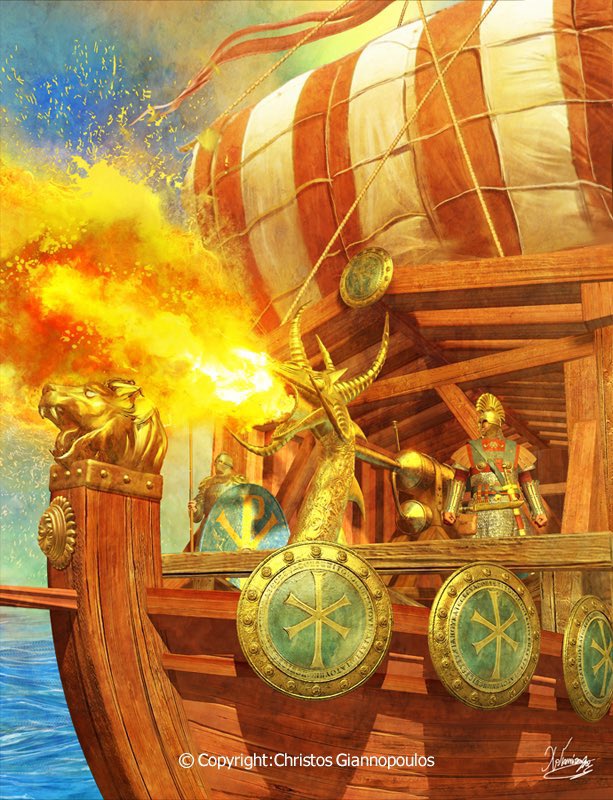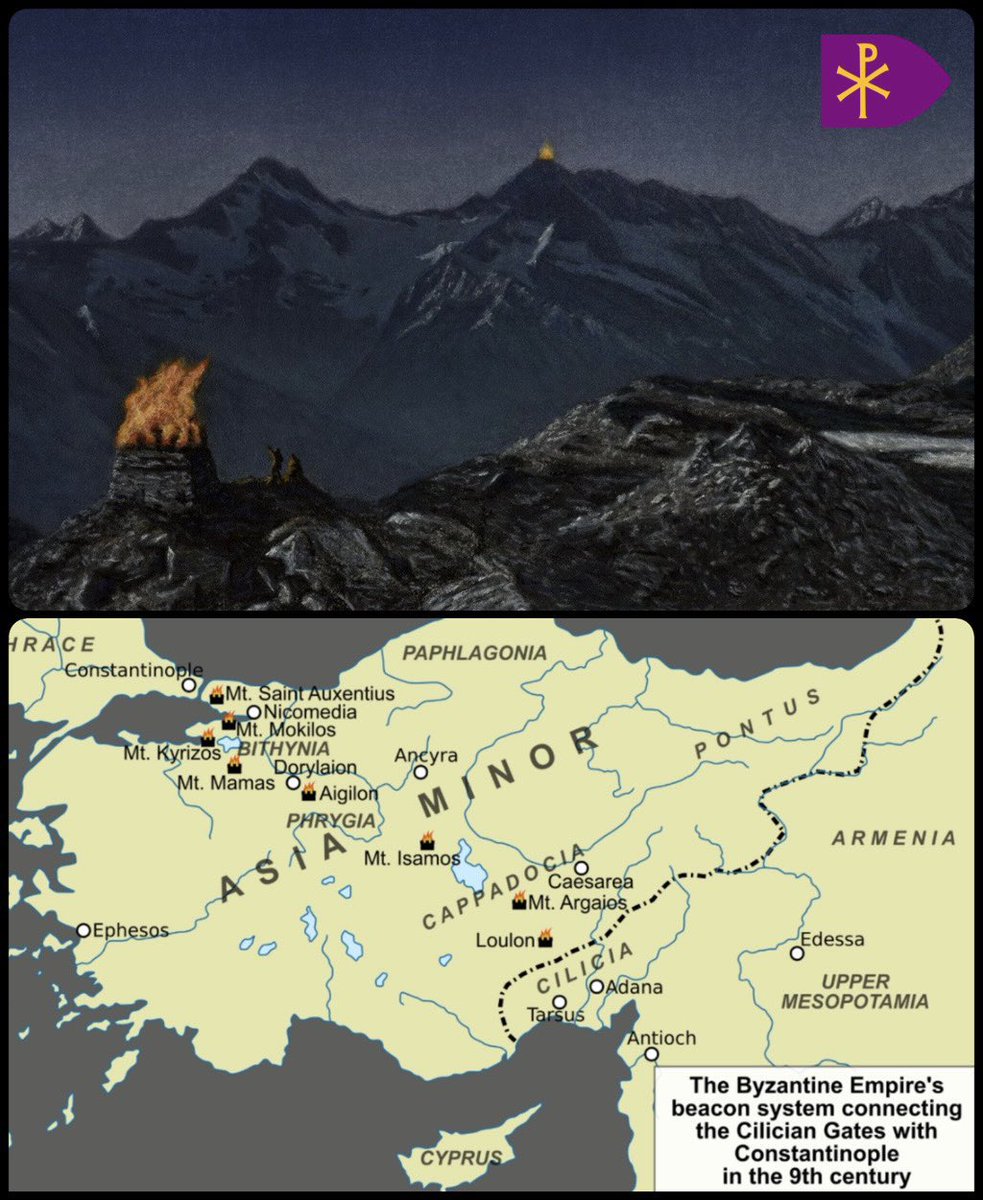The Mongol conqueror Hulegu wanted the Romans, the “Empire of Nicaea,” to submit to them.
In 1257 Hulegu sent the Romans an embassy requesting they bow to their rightful Mongol masters!
The Romans had to play it smart!!
(A thread) 🧵
In 1257 Hulegu sent the Romans an embassy requesting they bow to their rightful Mongol masters!
The Romans had to play it smart!!
(A thread) 🧵

Roman diplomatic genius was put straight to work! In the words of Nicholas Morton: “Emperor Theodore II (Laskaris) responded to this deputation’s arrival with a shrewd piece of statecraft.”
They needed to make themselves look bigger and stronger than they were.
They needed to make themselves look bigger and stronger than they were.

“When Hulegu’s representatives reached the border, rather than taking them straight to his court, Theodore ordered that they be brought to him by a long and meandering route in order to give a false impression of the size of the Empire of Nicaea.” 

Theodore “also arranged for well-armed squadrons of soldiers to be stationed along the road to give the impression that his empire could deploy huge numbers of troops.”
Brilliant, I must say.
Brilliant, I must say.

The Emperor thus found an amicable solution to the Mongol issue, they were basically a nominal Mongol client-state, though the Romans probably presented this more as an alliance of equals in their telling…
In 1260, under Michael VIII Palaiologos, a treaty was finally ratified!
In 1260, under Michael VIII Palaiologos, a treaty was finally ratified!

They were treated better than some other than some other client states.
Theodore Laskaris, followed by Michael Palaiologos, was able to secure from this alliance the restoration of an Orthodox Patriarch in Antioch. Already the Crusader-state had submitted to Mongol overlordship
Theodore Laskaris, followed by Michael Palaiologos, was able to secure from this alliance the restoration of an Orthodox Patriarch in Antioch. Already the Crusader-state had submitted to Mongol overlordship

That demonstrated that the Mongols valued and respected their Roman allies more than Antioch - imposing Roman demands on them. The Romans were using this alliance and nominal submission to great effect, and keeping their dignity in the affair. 

Securing some concessions like that likely allowed them to feel like it was more of an alliance than submission, regardless of how the Mongols may have interpreted it.
Both sides could take what they needed from it and present it favorably to their people.
Both sides could take what they needed from it and present it favorably to their people.

The Empire of Nicaea had truly impressive leadership and statecraft - I can only imagine what those Emperors could have done in earlier eras with a greater Empire to work with! They punched above their weight. 

Source: The Mongol Storm: Making and Breaking in the Medieval Near East by @NicholasMorto11
amzn.to/40vpWZp
amzn.to/40vpWZp
• • •
Missing some Tweet in this thread? You can try to
force a refresh


